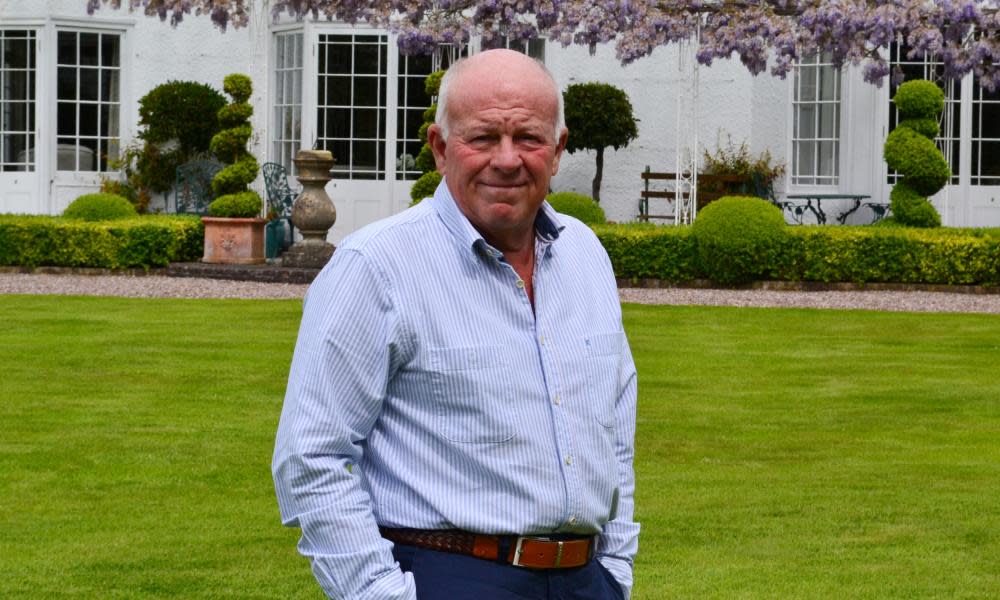The Tory party is so dependent on big money it now represents only a tiny elite

In the first fortnight of the election campaign, the Tories broke the record for the most money raised in a British election. The Electoral Commission’s latest data on donations shows the Conservatives consolidating their lead in the money stakes.
Since the start of November, large donors – those who give more than £7,500 – have contributed at least £12m to Tory party coffers. No other party comes close.
Money matters in politics, particularly during general elections. Running a campaign is a costly business. When it comes to political funding, Britain sits somewhere between the United States and Europe. Unlike in many European states, parties, and even individual politicians, largely finance themselves through private donations. Unlike in the US, the amount of money in British politics is pretty meagre. The 2018 US midterm elections were estimated to have cost almost $6bn. In Britain, almost anyone with £50,000 burning a hole in their back pocket can join the Conservative Leader’s Group and have dinner with the prime minister.
So far, this general election is confirming a major trend in British political funding. The Tories are increasingly reliant on a small group of very wealthy, overwhelmingly pro-Brexit donors, mostly involved in the City of London. Last week, a billionaire businessman, Peter Hargreaves, gave the Conservatives £1m. Hargreaves – who described Johnson as a “buffoon” in August 2018 – previously gave £3.2m to Arron Bank’s controversial Leave.EU campaign during the EU referendum. Jon Wood, the founder of SRM Global and a long-term Tory backer, gave £250,000, as did the Carphone Warehouse founder David Ross.
Labour, on the other hand, is largely dependent on trade unions and smaller donors for money. Jeremy Corbyn’s party received just over £4m in the first three weeks of the campaign, mostly from the unions. The private donors who once bankrolled the party under Tony Blair are long gone.
As ever, smaller parties have struggled to compete with the big two on fundraising. The Liberal Democrats raised just over half a million in the past week. Much of the Scottish National party’s money in recent years has come from an independence-supporting couple who won £161m on the EuroMillions lottery in 2011.
Labour has said that it has raised significant sums in grassroots donations. The Conservatives have said the same, but a look at the party’s most recent accounts suggests that’s unlikely. If anything, the Tories have become even more reliant on big money under Johnson. More than 80% of funds raised by the Conservatives in the first week of the general election came from members of the Leader’s Group, which is open only to those prepared to give at least £50,000 a year. In return, they receive regular off-the-record dinners, lunches and drinks receptions with the prime minister and other senior Tory figures, including leading cabinet ministers.
One Leader’s Group donor previously said: “The donors are treated like an intelligent fan club. If there is a businessman who wants to have a chat with a future prime minister then this is his opportunity.”
We don’t know who attends the Leader’s Group. After previous scandals, the Tories pledged to publish details about the dining club, but they have stopped doing so. We do know that it has given in excess of £130m to the party over the past decade, as openDemocracy revealed recently.
The money behind British politics has changed. After June 2016, the Conservatives already narrow funding pool contracted sharply. The pro-European business elite fled the party as factions such as the European Research Group became increasingly powerful. Around two-thirds of existing Tory donors reduced their contributions after the EU referendum, or stopped giving at all.
Dislocated from their traditional support, the Conservatives are now largely dependent on funding from a small number of overwhelmingly pro-leave donors. When Johnson took over, promising a hard Brexit, donations increased sharply, particularly from corporates and wealthy individuals involved in hedge funds and other speculative finance. The Conservatives’ growing dependence on hedge fund donors has not gone unnoticed. In September, the former chancellor Philip Hammond declared that Johnson was in league with financiers who, he said, stood to profit handsomely from a no-deal Brexit. The prime minister’s sister, Rachel Johnson, agreed.
The reality is more prosaic, and arguably far more concerning. Hedge fund donors are not trying to orchestrate a great financial heist, but a very small subset of British society now has a hugely disproportionate influence on the Conservatives.
“The Tory party is now wholly unrepresentative in any way of the UK population – its source of funds is so restricted,” says the economist Frances Coppola. “These are all people who want to see a bonfire of regulation, a Singapore-on-Thames.”
Across the political spectrum, “cash for access” scandals have been a fixture of British politics. Almost one-fifth of Conservative Leader’s Group donors have received honours including knighthoods and peerages after donating to the party.
Some Conservatives are worried about the party’s reliance on big money. Back in February one of the Tories’ most generous donors, the taxi millionaire John Griffin, criticised the party’s dependence on wealthy benefactors, and urged a “more energetic” approach to soliciting donations from ordinary members.
Britain’s mid-Atlantic approach to political funding means every party is desperately scrambling to raise money. The easiest way to limit undue influence is to cap donations. But there is no sign of that happening any time soon.
• Peter Geoghegan is investigations editor at openDemocracy. His book, Democracy For Sale: Dark Money and Dirty Politics, is published in 2020

 Yahoo News
Yahoo News 
